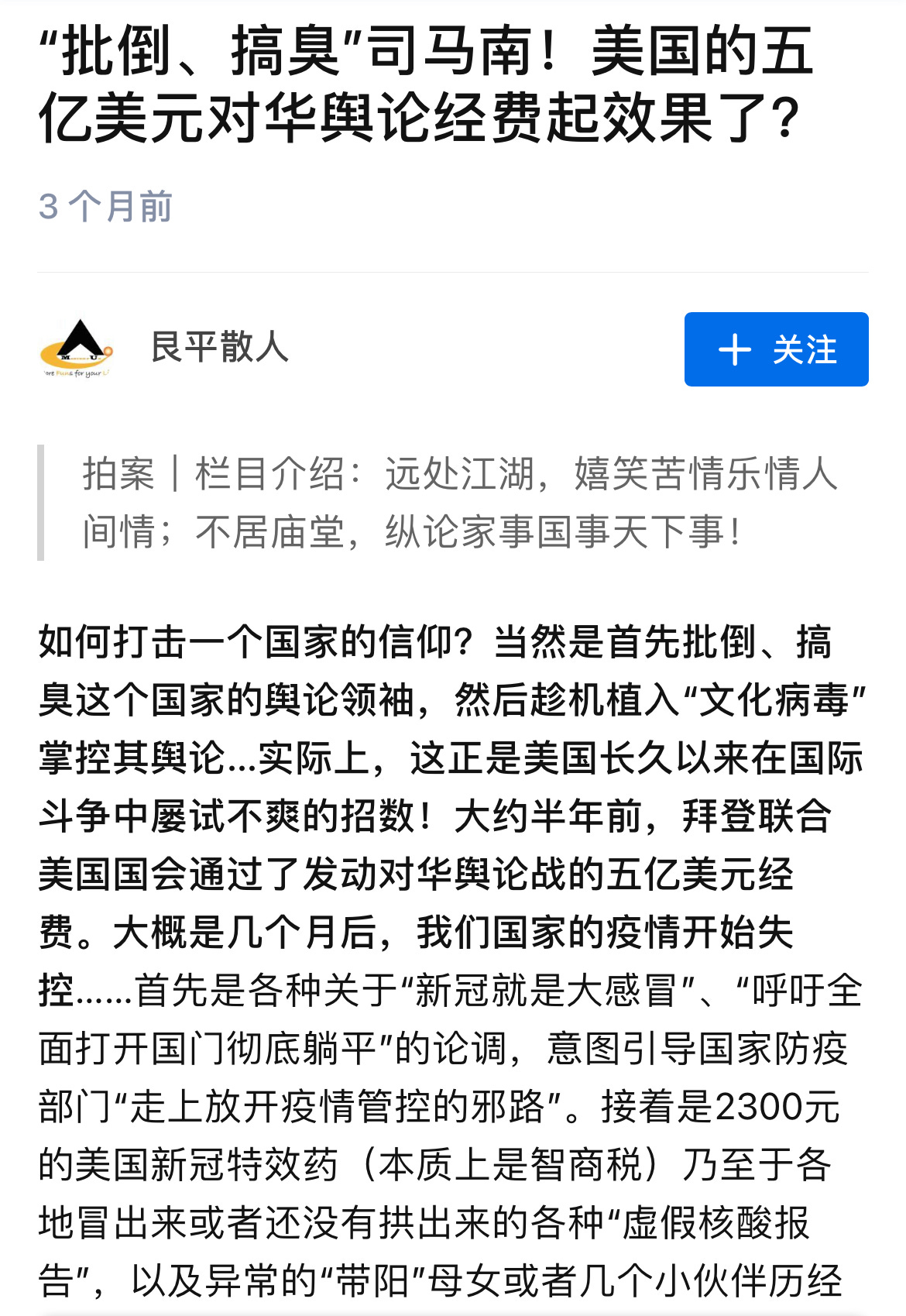Case study: how a conspiracy theory about the US funding nationwide protests in China was created
The misinformation can be traced back to online commentators, state media and an American publication.
An increasingly popular conspiracy theory on China's internet right now is that the US has a $500 million budget to support or even initiate nationwide anti-zero Covid protests in China. I did a little digging to find out how this conspiracy theory was created.
A few screenshot like these have been circulating online, especially on Weibo, showing people in a Telegram group asking about getting paid 80 RMB ($11) to protest. One person said that he heard there is a $500 million budget.

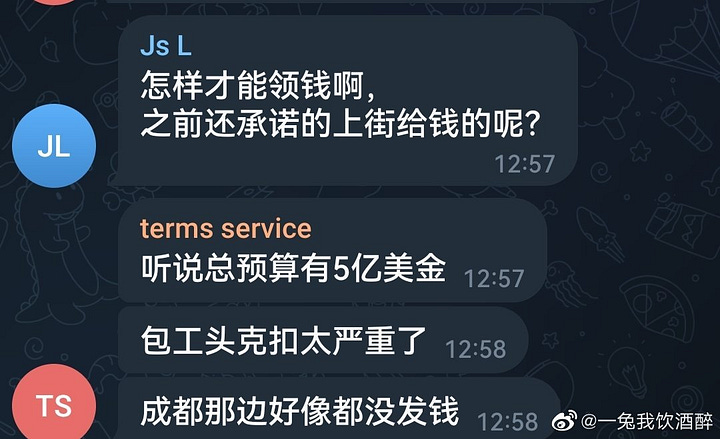
Pretty soon a bunch of pro-government/nationalist influencers and commentators started spreading the hearsay about the $500m budget from the US/foreign forces.
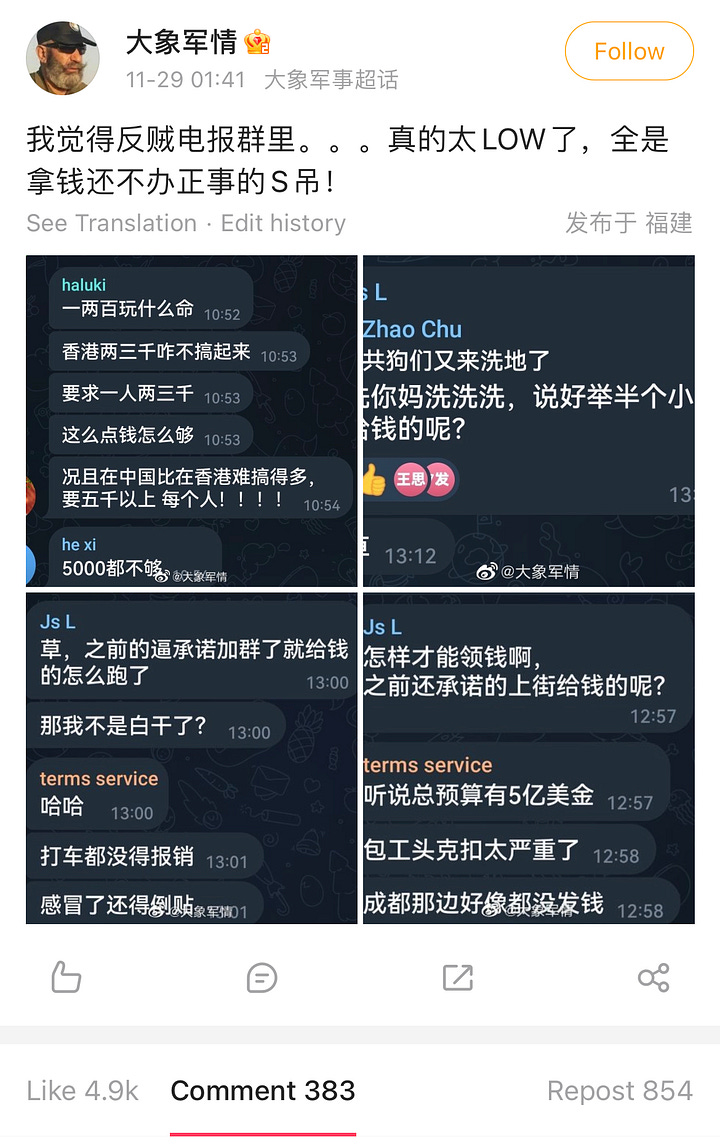
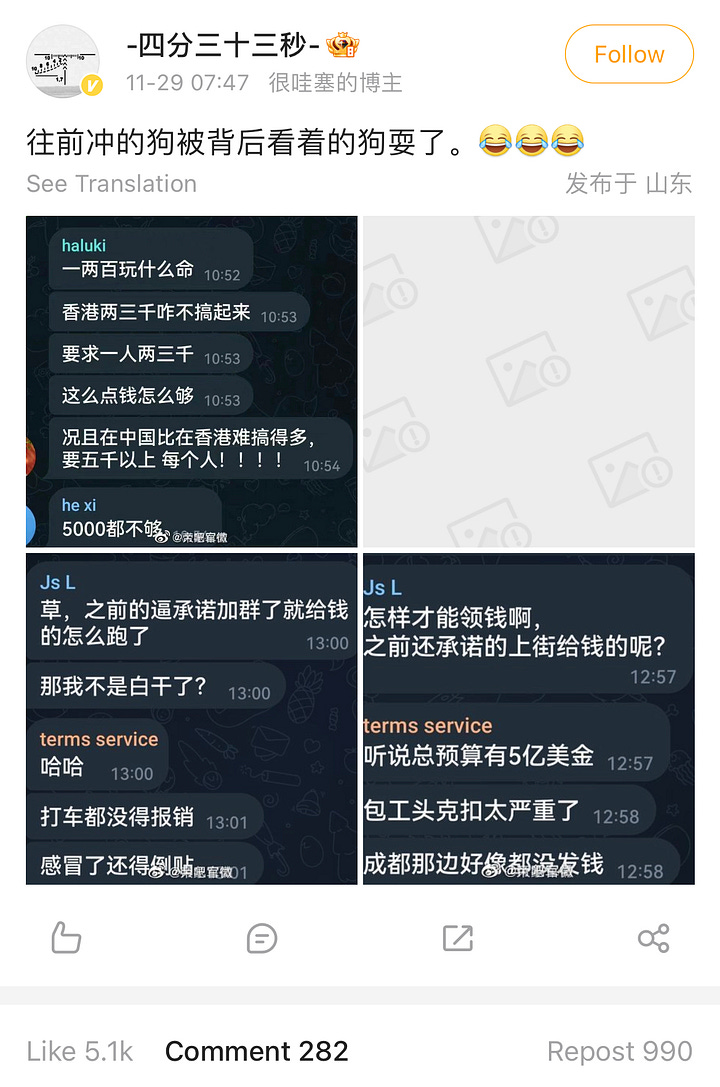
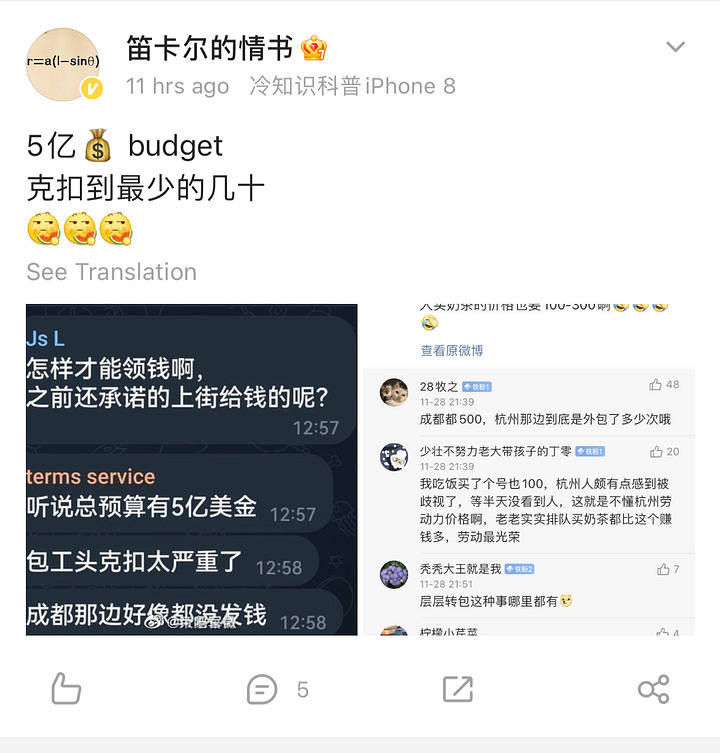
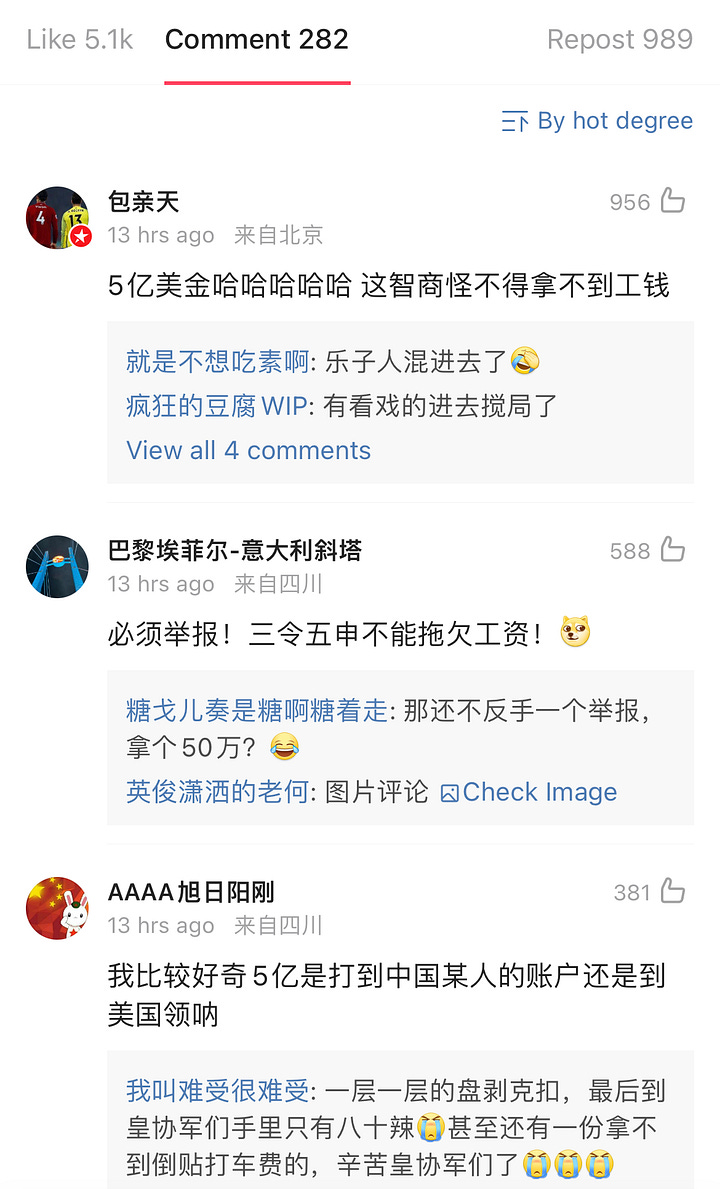
There was also a video that shows a guy saying he's paying 500 RMB ($70) each for people to protest. Notice that there is a police vehicle right across the street. A pretty stupid foreign agent I'd say.

There are different versions of how much foreign forces were paying the protesters. Some say 500 RMB, some say 200 or 150. The widely accepted one right now is 80 RMB. As the person in a previous screenshot indicated, the price dropped because the middlemen took a big cut.
But one number has remained the same--500 million. So where did it come from?
I did some searching on China's internet and found that this number has been talked about a lot by pro-government/nationalist influencers way before the nationwide protests even began.
Previously, the $500 million wasn't to start protests. According to these influencers/commentators, it was to wage a war on public opinions against China. And the money comes right from the US congress.
As this commentator wrote in August: "Biden, working with the US Congress, had passed a budget of $500 million to start a war on public opinions against China. About a few months later, the pandemic in our country started to spin out of control...”
The commentator believed that a lot of talks about lifting Covid restrictions and opening up the country were the result of public opinion manipulations by the US.
So what exactly is this Congressional budget?
What the commentator here referred to was the the America COMPETES act of 2022. And in China, the interpretation that the bill was to start a war on public opinions against the Chinese government first came from the Global Times.
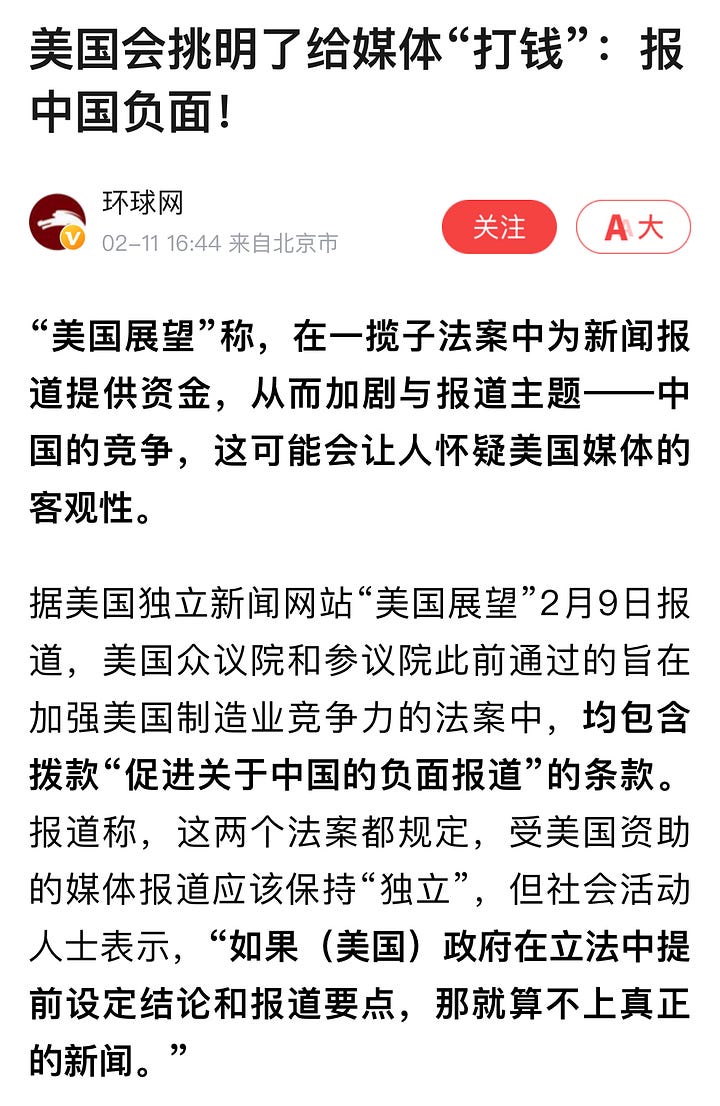
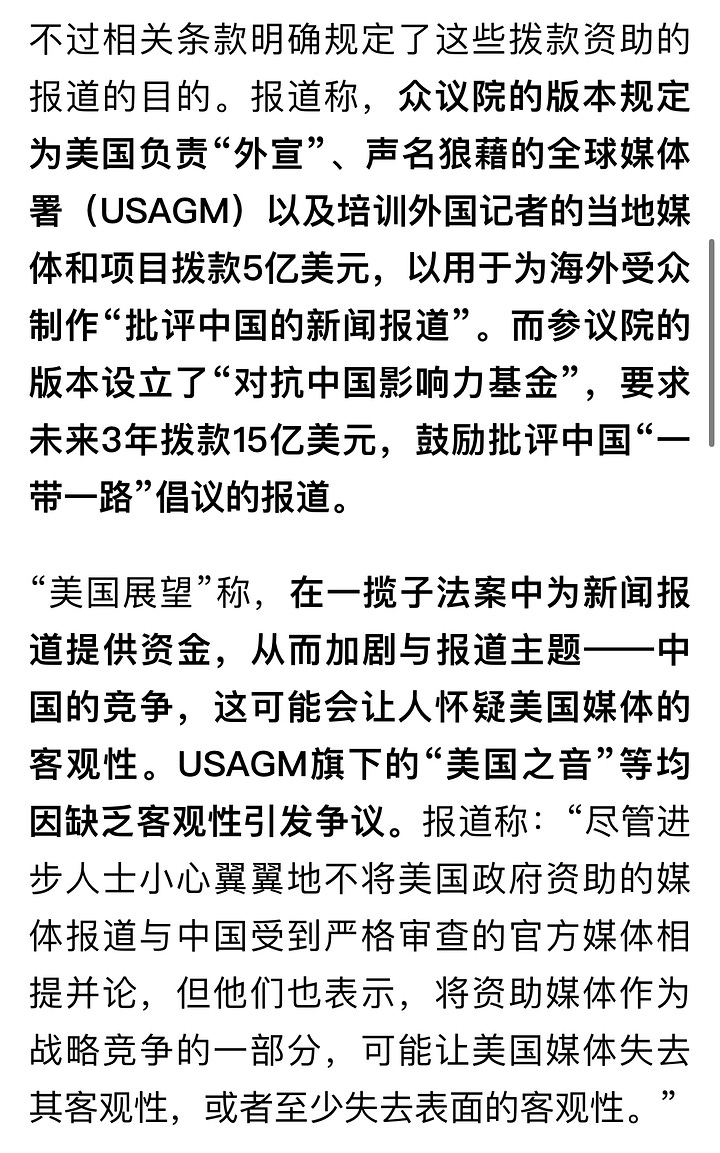
The article claims that the bill was to fund "negative news coverage of China" and that the United States Agency for Global Media was to receive the $500 million.
(Disclaimer: USAGM oversees Voice of America, where I work. But there is an editorial firewall.)
So what's true about this article and what's not? For starters, the USAGM indeed was to receive the $500 million budget. But...
1) The money was going to be released to the agency over the span of 5 years (2022-2026). So there's currently no $500m lying around somewhere that can be tapped into for "public opinion wars".
2) Yes, networks under USAGM, including VOA, Radio Free Asia, produced news reports that can generally be considered critical of China. But that's partly because these outlets basically exist to report on issues/opinions that China doesn't allow their own media to cover.
3) And as I mentioned, there is an editorial firewall between USAGM and its networks:
"The networks enjoy full editorial autonomy, free of influence from other U.S. government entities and authorities, to include the USAGM CEO and the Secretary of State."
4) The money was not for "negative news". It was to "to support local media, build independent media, combat Chinese disinformation inside and outside of China, invest in technology to subvert censorship, and monitor and evaluate these programs".
So the "$500 million budget" has nothing to do with starting anti-zero Covid protests in China or manipulating public opinions. Also both VOA and RFA are blocked in China. So their impact is really limited inside the region.
What's interesting is that, if you read Chinese, you can probably tell from previous screenshots that the Global Times piece wasn't even original. It mostly relayed an article published on an American website.
It's the American Prospect, which "is devoted to promoting informed discussion on public policy from a progressive perspective".



